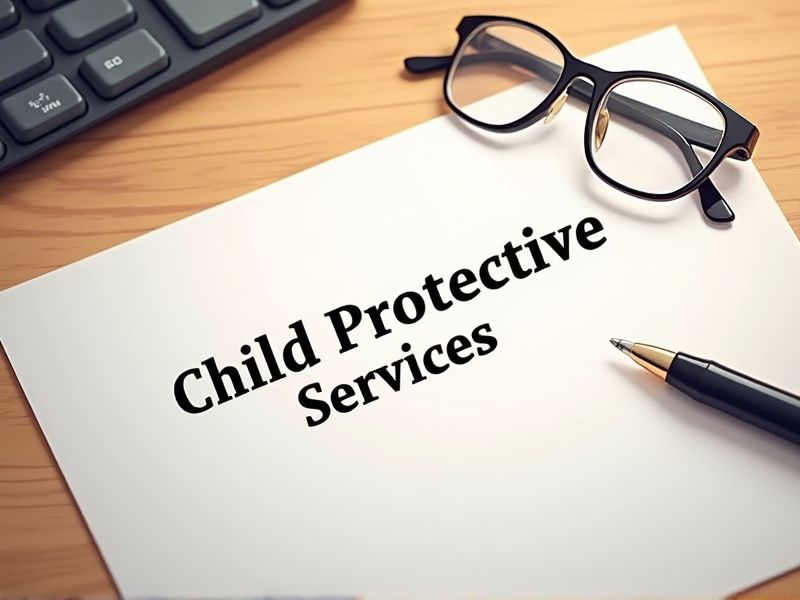
Child Protective Services Workers play a critical role in ensuring the safety and well-being of children in potentially harmful environments. The demanding nature of their duties requires specific skills and knowledge to handle complex family dynamics and legal protocols effectively. Certifications provide essential training in areas such as child welfare, crisis intervention, and trauma-informed care, equipping workers with the tools to make informed decisions. These are some important certifications that may be needed for a Child Protective Services Worker.
Child Welfare Caseworker Certification
Child Welfare Caseworker Certification ensures that Child Protective Services workers possess the necessary knowledge and skills to effectively safeguard children's welfare. The certification process establishes a standardized level of competency and ethical conduct required for handling sensitive cases. Certified caseworkers are better equipped to make informed decisions that can prevent harm to vulnerable children. The certification often leads to increased trust and credibility between caseworkers and the communities they serve, fostering more efficient interventions.
Mandated Reporter Training Certification
Mandated Reporter Training Certification equips Child Protective Services workers with the necessary knowledge to identify signs of child abuse and neglect, increasing the chances of early intervention. The certification ensures that workers understand legal obligations and reporting procedures, reducing the risk of liability for both the individual and the organization. Proper training enhances the ability to gather critical evidence, which can support legal action and protect the child effectively. Consistent certification establishes a standard across the field, ensuring that all workers maintain a baseline level of competency and understanding in handling sensitive cases.
Child Abuse Identification and Reporting Certification
Child Protective Services (CPS) workers require Child Abuse Identification and Reporting Certification to accurately identify instances of abuse and neglect, which helps ensure the safety and well-being of children. Certification equips CPS workers with knowledge and skills to recognize signs of different abuse types, enhancing their ability to intervene effectively. Having comprehensive training in abuse reporting fosters timely and accurate documentation, essential for legal processes and case management. Certification ensures compliance with state and federal regulations, reducing the likelihood of procedural errors and legal liabilities.
Trauma-Informed Care Certification
Trauma-Informed Care Certification equips Child Protective Services workers with the skills to recognize and understand the impact of trauma on children's behavior and development. This training fosters more empathetic and supportive interventions, reducing the risk of re-traumatization during interactions. The certification enhances workers' ability to create safer environments for children, promoting healing and recovery. It also aligns with best practices to improve systemic outcomes and strengthen trust between families and service providers.
Crisis Intervention Training Certification
Crisis Intervention Training Certification is essential for Child Protective Services (CPS) workers to equip them with strategies to manage high-stress situations effectively, thereby reducing the risk of harm to children and families. As CPS workers often encounter emotionally charged environments, the certification enhances their ability to de-escalate conflicts, improving outcomes for all parties involved. The training provides CPS workers with the necessary tools to make informed decisions swiftly, which is crucial in emergency situations where child safety is at stake. By understanding psychological and emotional triggers, CPS workers can foster better communication and trust with families, leading to more successful interventions and support.
Mental Health First Aid Certification
Child Protective Services (CPS) workers often encounter children and families in crisis, which significantly elevates the need for mental health awareness to recognize signs of distress. Earning a Mental Health First Aid Certification equips CPS workers with essential skills to provide immediate and effective support in potentially high-risk situations. This certification ensures that workers are better prepared to assist individuals experiencing mental health challenges, promoting more successful interventions. Proper mental health training helps to build trust and rapport with families, ultimately contributing to better long-term outcomes for children.
Domestic Violence Intervention Certification
Domestic violence intervention certification equips Child Protective Services workers with the necessary skills to recognize and assess situations of family violence more accurately. Without this specialized training, workers may overlook or misinterpret signs of domestic abuse, potentially leaving children in harmful environments. The certification also provides strategies for effectively communicating with victims and perpetrators, facilitating safer interventions. Certified workers can implement evidence-based approaches to create better safety plans, reducing the risk of future harm to children involved.
Substance Abuse Awareness Certification
Substance abuse awareness certification impacts the effectiveness of Child Protective Services (CPS) workers by enhancing their ability to identify signs of substance misuse in families. Recognizing these signs enables CPS workers to intervene earlier, reducing potential harm to children. Certification ensures workers are equipped with up-to-date knowledge on substance abuse trends, which aids in providing informed support strategies. Increasing awareness and understanding fosters stronger collaboration with healthcare providers and community resources, improving overall outcomes for affected families.
Child Advocacy Certification
Child advocacy certification equips workers with specialized knowledge about child welfare laws and regulations, leading to informed decision-making. The certification provides training in understanding child abuse indicators and effective intervention strategies, which is crucial for protective services. Certified workers are better prepared to navigate complex family dynamics, reducing the risk of misjudgment or oversight. Formal credentials enhance credibility and trust with families and legal entities, facilitating smoother case resolution.
Cultural Competence in Child Welfare Certification
Cultural competence in child welfare certification enhances understanding and appreciation of diverse backgrounds, leading to more effective communication with families. Improved communication reduces misunderstandings, which can result in more accurate assessments of a child's needs. Understanding cultural differences allows workers to provide interventions that are respectful and tailored to each family's specific context. Properly addressing and respecting diversity can help build trust between families and child welfare services, increasing cooperation and better outcomes for children.
Summary
When you focus on certifications for Child Protective Services Workers, it typically results in enhanced skill sets and understanding of child welfare. The additional training equips them to identify signs of abuse and neglect more effectively. This proficiency fosters better decision-making in high-stakes situations involving children at risk. Consequently, families experience improved interventions and outcomes, contributing to overall community safety.
